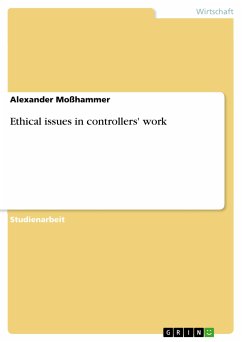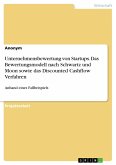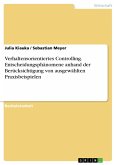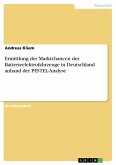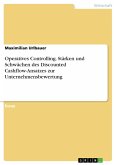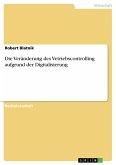Studienarbeit aus dem Jahr 2016 im Fachbereich BWL - Controlling, Note: 2,00, Leopold-Franzens-Universität Innsbruck (Institut für Organisation und Lernen - Bereich Management Accounting), Sprache: Deutsch, Abstract: Since managers were confronted with the problem of governing extensively extended organizations by some facile mechanisms, instruments and other means, they constituted the professional area of controlling. The main objective of controlling thereby should be to govern and direct organizations and their business actions by financial as well as non-financial information. Because of its easier interpretability financial information until now is still considered as the fundamental instrument of corporate governance, however, non-financial information nowadays is more and more considered with increasing importance. Although this conception of numerical leadership seems to be an innovation nobody in the 21st century wants to miss anymore, it has also a downside. As numerous, more or less grave incidents within the last decades give evidence, sole numerical leadership by the usage of operating numbers and driven by the endeavour of profit maximization regularly comes in conflict with ethical and moral behaviour. At least since the Enron scandal in 2001, which illustrates the absolute worst case of unethical behaviour in controlling and auditing and which is responsible for the loss of billions of dollars as well as thousands of jobs, the society became aware of the hazards that come along with unethical controlling techniques. This case study is tied to this critical approach to controlling and endeavours to show some conflicting points where controlling, driven by the objective of profit maximization, leads to unethical and/or even hazardous behaviour. Taking this deliberation one step further we also try to show possible solutions to prevent or alleviate such unethical behaviour and make a critical appraisal of them. Furthermore we will focus on how ethical values should be educated to ensure conformity of managers' future business decisions with ethical values. In a last step we endeavour to show, that the conception of ethical behaviour itself constitutes not an absolute measure for assessing economical behaviour. Ethical behaviour is rather a relative way of thinking than an absolute one i.e. what is ethical for one part does not need to be considered as ethical for the other part. Thus it is important to know that there exist some points of view from which controllers' unethical behaviour may be considered as ethically correct.
Dieser Download kann aus rechtlichen Gründen nur mit Rechnungsadresse in A, B, BG, CY, CZ, D, DK, EW, E, FIN, F, GR, HR, H, IRL, I, LT, L, LR, M, NL, PL, P, R, S, SLO, SK ausgeliefert werden.

